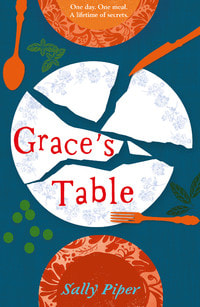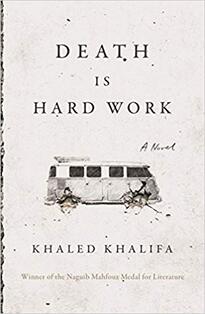Grace’s Table by Sally Piper
As they cook, Grace reflects on her life: growing up on a farm, escaping to the city, her career as a nurse, the work of mothering, her regrettable marriage and her husband’s early death. As on this occasion, food has signified more than basic sustenance, and what was a chore for Grace was her own mother’s language of love. Strongly-held views about how to cook and what to eat stream from kitchen to table, where differences between friends are easier to tolerate than the divisions between parents and children. Meat has been a constant for Grace, from her own father’s growing it, her husband’s butchering – and control of what came to the table – to her children’s scorn for her teenage granddaughter’s vegetarianism.
Amid the memories and the mockery, Sally Piper subtly signposts an absence, but we don’t discover its significance until much later. Our sympathies are primarily with Grace: surely her children are sufficiently grown-up to accept that her mother has a lover? It’s not the wine, but a well-meant toast, that unbuttons Susan’s lips to share her experience of the unspeakable family tragedy. Grace had done her best, but had never realised her best wasn’t good enough.
I so admire Sally Piper’s handling of this painful theme: resisting the urge to crank up the tension with stronger foreshadowing and/or to provide an it’s-all-right-then ending (although she does give Grace a speck of redemption). My interest dipped slightly when the guests arrived – although Sally Piper manages a large cast better than many – but otherwise Grace’s Table is a gem: developing from pleasurable but undemanding read to an insightful exploration of family dynamics and how past hurts influence our present-day interactions, as our previous selves live on inside us like matryoshka dolls.
Grace’s Table is Brisbane-based author Sally Piper’s debut novel, published in Australia in 2014 and is now available in the UK thanks to Legend Press, who provided my review copy. From the blurb, I might have passed on this one if I hadn’t enjoyed The Geography of Friendship earlier this year, which would have been a shame as I’m awarding it a rare five stars.
Death Is Hard Work by Khaled Khalifa translated
by Leri Price
But a besieged city is no place for the old. A starvation diet takes its toll and his friends summon his youngest son from Damascus to take him in. Bolbol, who’s kept his head down to avoid contention is challenged both personally and politically by the old revolutionary’s pronounced opposition to the repressive regime. Yet when the old man asks, on his deathbed, to be buried beside his sister – a girl who chose death over forced marriage to a man she couldn’t love – Bolbol readily agrees.
The novel begins with Bolbol contacting his brother and sister to journey to Anabiya. A trip that, in former times, would take three hours, drags into as many days, queuing at checkpoints in the company of a putrefying corpse. The angst-filled hours afford the siblings multiple opportunities to lament their decision to respect their father’s request, in a place where bodies rot in the streets and violent death has become the norm, if not to mourn the man who was worlds away from the parent they needed. Nor do they use the time to bridge the differences that have estranged them from each other.
The lightly humorous tone of the opening pages surprised me, but in a good way. How else to render the absurd regime than as farce? There’s also an admirable honesty in the characterisation: none of these people are heroic, and particularly not Bolbol, despite his willingness to travel through a war zone on an almost impossible quest. But the omniscient narration is distancing and, at times, despite some interesting and alarming stories peppering the account, I often felt as bored – although fortunately not as anxious – as the beleaguered Syrians waiting at checkpoints, their lives dependent on a killer’s whims. With the author still resident in Damascus, I wish I could have honoured his bravery and appreciated his work more. Thanks to Faber for my review copy.
| I’ve written about an older woman facing an adult child’s disapproval in the context of a parent’s death – deftly melding both these novels! – in “The Witch’s Funeral”, one of the stories in my collection, Becoming Someone. You can hear me read the opening here | |























 RSS Feed
RSS Feed





















